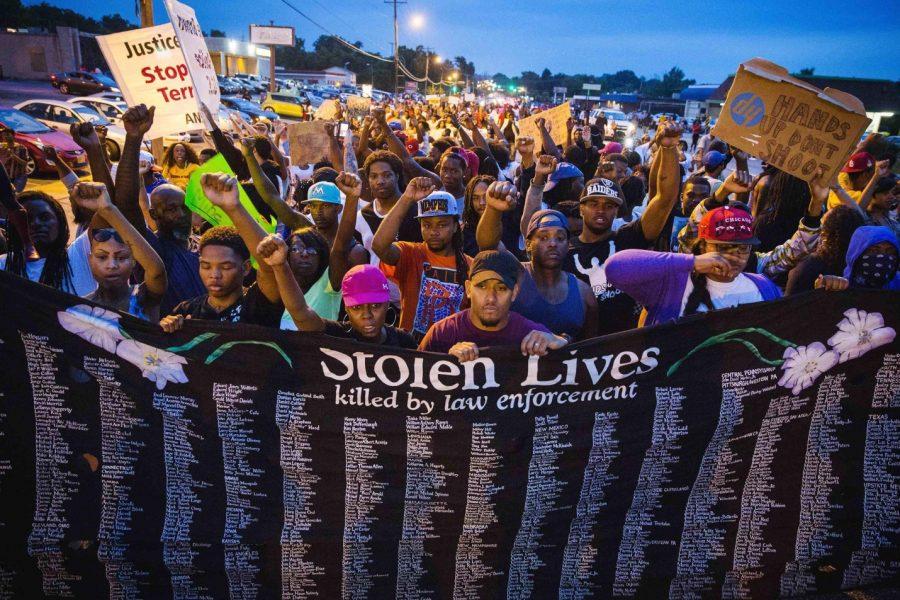Why It’s Time to Talk About Race
April 7, 2015
Growing up in the South, I was always told that you should never talk about religion or politics in polite company, but there has always been an even more “dangerous” topic Americans avoid like the plague: race.
Americans, and particularly white Americans, are scared stiff of talking about race. For some reason, it frightens us more than talking about earth-shattering issues like the revival of Russian Nationalism or the newly hatched Islamic State.
For example, Starbucks was recently lambasted for recommending their employees to write the phrase #racetogether on customers’ cups. Almost immediately after the announcement, pundits and twitter feeds started criticizing the chain, questioning whether it was possible for a mere barista to hold a conversation on race. It really wasn’t surprising when Starbucks announced six days later that it would roll back the initiative.
And that raises the question: What are you afraid of, America?
The answer depends on who you ask. Many white Americans avoid the conversation because they feel that their place in the majority disqualifies them from adding anything meaningful to the discussion. But there are some who distance themselves from race because of a more problematic stance: the idea that America is a post-racial society where racial tensions are a thing of the past and we sing Kumbaya around campfires every second Saturday of the month.
Now it should be apparent (either through common sense or my blatant use of sarcasm) that this is ridiculously false. A post-racial society doesn’t erupt in protests and demonstrations about race when a young, African-American male from Ferguson, Missouri is shot and killed by a white police officer.
It’s tempting to want to slap on the elbow grease and find a fast, concrete solution for racism. But participating in discussions about race is a step that can’t be skipped. Not talking about race, racism, or minority experience causes many white Americans to miss out on understanding what it is like to grow up in a culture that originates from an oppressive history of slavery and legalized discrimination. It is this disconnect that caused many misunderstandings in the wake of shootings like those of Trayvon Martin and Michael Brown.
While many Americans still think of racism in traditional terms, scholars like Presbyterian College’s own Dr. Booker T. Ingram believe that this idea doesn’t really apply to today’s society.
“Racism, historically, has been defined as a psychological disposition that expresses hate of blacks or other marginalized groups. However, racism itself has become a structural institution made of social networks that provide access to certain institutions, and these institutions advantage certain people and disadvantage other people,” Dr. Ingram said.
This distinction is extremely important because it means that racism now occurs when people claim to be “colorblind.” Instead of actively hating fellow citizens, this form of discrimination ignores racial heritage completely, as if race is not an important part of one’s identity.
The problem is that when you ignore someone’s race, you ignore a whole aspect of their life that determines who they are and how they act. This was blatantly clear during analyses of the protests that took place after Ferguson. Many white Americans were convinced that the protests were unfounded because they saw them as accusing a conspiracy that didn’t exist. But as Dr. Ingram explained, “Even though these shootings might be looked at in isolation, they are not perceived that way within the African-American community.”
The protests were really about a larger problem, one that arose from the post-reconstruction period when, after being promised due-process and equal protection under the law by the new 14th amendment, many African-Americans were systematically and legally oppressed. One form of oppression was anti-vagrancy laws that forbade young African-American males from congregating in the street and community. Police brutally enforced these laws, and as Dr. Ingram put it, “Many young African-Americans would come to perceive law enforcement as an occupying army.” Memories of these laws still exist today, and they serve to explain why people were infuriated after Officer Darren Wilson shot Michael Brown. Remember that Michael Brown was not stopped because he was committing a crime; he was stopped because he and his friend were walking in the road.
This is why it is critical that we start talking about race and start talking about it now. The longer we delay these simple conversations, the longer we ignore each other in harmful ways. If we keep pretending that race doesn’t matter, then there will be more and more protests with signs saying “black lives matter.”
It’s not going to be easy to talk about race, but if we don’t, our country will suffer for it. So let’s talk, America. What are you afraid of?





